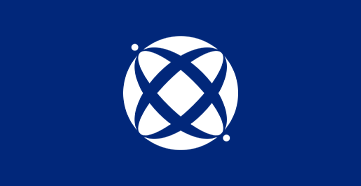|
|
Dec 11, 2020
In early October, tech giant Google announced it had set aside over $1bn to pay media outlets to display curated content on its news apps, initially as part of a three-year programme. Google will pay publishers it chooses on a market-by-market basis to provide blurbs for the company’s Google News Showcase app (‘Showcase’) and to give readers free access to certain paywalled articles.
Overview of the global landscape of insurance claims, offering analysis on emerging patterns, challenges and best practices in effective claims management across the globe.
IBA Insurance Conference 2024: AI in insurance and other global insights
In 2020, the independent advisory body to the Media Freedom Coalition, the High Level Panel of Legal Experts on Media Freedom, published an advisory report ‘A Pressing Concern: Protecting and Promoting Press Freedom by Strengthening Consular Support to Journalists at Risk’ examining the existing State approaches respecting consular assistance for journalists at risk abroad, and proposes a new paradigm of justice and accountability.
Every day, journalists and media personnel around the world fall victim to arbitrary detention, violence or intimidation on account of their work. These attacks resonate beyond their individual cases, being not only attacks on free expression, but also exponential assaults that silence the subjects of the reporting and deprive the public of their stories. By threatening and targeting journalists, States seek to send a dissuasive message, suppressing those who would report on their wrongdoings. According to Reporters Without Borders, as of 2022, over 500 journalists are arbitrarily detained worldwide. This is the highest number of journalists detained in connection with their work that they have ever recorded.
This event, organised by the International Bar Association’s Human Rights Institute who act as Secretariat to the High Level Panel, will feature members of the High Level Panel and guest speakers in conversation on the role of international law in finding concerted approaches to address this mounting issue.
IBA Annual Conference Miami 2022

Jul 08, 2025
Mediation is on the rise internationally as a means to settle disputes in a cost-effective manner. Chinese parties appear to be increasingly interested in mediation as an option. This article examines the evolving landscape of mediation in China and internationally. It considers how mediation for Chinese parties is evolving and whether mediation is a good option for Chinese parties in cross-border disputes. Commercial mediation has seen remarkable growth, bolstered by a supportive PRC judicial system and legislative initiatives encouraging parties to find harmonious ways to resolve disputes. The article analyses the three primary types of mediation in China: people’s mediation, administrative mediation, and commercial mediation. It also looks at mediation rules and proceedings in common law jurisdictions, such as Hong Kong, Singapore, and the United States. The article anecdotally considers the cultural elements, emphasising the Chinese parties’ preference for evaluative mediation styles as a reflection of civil law. Through case studies of international disputes involving Chinese and US parties, the article illustrates the practical dynamics of mediation involving Chinese parties and underscores the importance of cultural sensitivity in international mediation. As Chinese parties continue to go global, mediation is emerging as an attractive option for efficient and cost-effective dispute resolution. This analysis assesses whether the promotion of mediation is yielding tangible outcomes and explores the future of mediation involving Chinese and foreign parties.
Cartel-busting, long the mainstay of antitrust enforcement, faces existential challenges in many jurisdictions. Leniency pipelines are no longer producing a steady flow of cases, but are slowing to a trickle, as booming private litigation and the rise of class actions in a number of countries make whistleblowing ever less attractive to cartellists. Electronic communications result in what is at times an overwhelming volume of material to be sifted by all those involved. And artificial intelligence is spawning a wealth of new ways in which markets can be fixed, many of which are hard to detect, and some of which may be beyond the reach of existing laws. As legislators and agencies are reconsidering their amnesty/immunity regimes, the focus in enforcing cartel laws is moving beyond traditional sell-side cartel behaviour into labor and other “purchasing” markets. What is happening to international cartels and globally coordinated enforcement action in the meantime? This session will explore how enforcers, private practice and business around the globe are responding to these and other trends in cartel enforcement.
IBA Annual Conference Miami 2022
Mar 12, 2025
In the competitive legal market, law firms invest substantial resources in marketing. However, many firms fail to prioritise the ultimate goal of these investments: converting leads into clients. A necessary key performance indicator (KPI) to measure marketing success is the number of leads generated, as leads represent potential business opportunities. However, while generating leads is crucial, success is ultimately determined by how effectively those leads turn into paying clients. Without conversion, marketing efforts become a sunk cost rather than a growth driver.
Marilu Capparelli is one of the managing directors of the EMEA Google Legal Department, she leads an international team of lawyers located in different countries and is also leading a copyright litigation strategy area in EU. Marilu is an Italian qualified lawyer with experience in major international law firms, at the Court of Justice of the European Union and as an in-house counsel. Before joining Google, she was Head of Legal and Government Affairs at eBay Inc, Skype and Paypal.
Annual IBA Employment and Diversity Law Conference 2024
By Byung-Woo Im. Judges and arbitrators as adjudicators and settlement facilitators, and the Singapore Convention on Enforcement of Mediated Settlements
Also, it will address how sports events´ owners and producers are dealing with “active” fans who want to choose what, when and how to watch and how much the new players - Facebook, Amazon, Netflix, Google, Tik Tok, Kwai and other digital media – are willing to pay for sports content and how will their payback be.
IBA Annual Conference Miami 2022
By Sungjean Seo. How evidence is best presented in international arbitration and the IBA rules on evidence
Second, many jurisdictions have moved to force digital platforms like Google and Facebook to compensate news organisations for the use of their content.
IBA Annual Conference Miami 2022
Apr 22, 2022
This article discusses the recent SEC case involving PwC and highlights the wider implications for intermediary institutions providing professional services in a tightened regulatory and enforcement regime in China’s banking and financial sector.
How do AWS, Google, and Microsoft deal with issues like choice of law and forum, liability, service levels, termination, and more?
IBA Annual Conference Miami 2022
Apr 29, 2025
For many law firms, international legal work is already part of their practice. Whether it is advising foreign investors, navigating cross-border transactions or handling disputes with an international element, legal teams often engage beyond their own jurisdictions. But true internationalisation is more than just taking on occasional cross-border matters.
While the academic study of leadership roles found in a board of directors and management is not new, it is almost unheard of in Cambodia. This is not surprising given the country’s entire corporate governance and economic structure are still evolving.
Feb 17, 2023
This article will outline the development of China’s restrictions on the cross-border transfer of personal information (PI export), detailing PI export mechanisms provided by the Personal Information Protection Law. It will also explain the practical implications of the restrictions.
Feb 04, 2021
The US Department of Justice has launched an antitrust suit against Google, alleging the tech giant used its size to unlawfully maintain its position in online search and advertising. Global Insight assesses the action in the context of previous cases.
Twitter announced in late October it was banning all political advertising, saying the reach of such messages ‘should be earned, not bought’. Google too has opted to disallow political advertisers from targeting voters based on their affiliation and to tighten its ban on ‘demonstrably false claims’.
Facebook meanwhile is facing increasingly fierce criticism for refusing to follow suit, particularly given the UK’s upcoming general election on 12 December.
IBA Global Insight August/September 2017 - Chinese investment overseas, IBA Pro Bono Award nominees, law firm management webinar series, IBA Annual Conference 2017 Sydney, Google fined by EU for anti-competitive behaviour, China Working Group, India Contact Group, Code of Conduct survey
Jun 12, 2024
The new Foreign State Immunity Law 2023 of the People’s Republic of China came into force on 1 January 2024. This shifts the country (as well as its special administrative regions, Hong Kong and Macau) away from absolute state immunity to restrictive state immunity, bringing it more in line with the relatively prevalent practice among the international community. This article discusses the status of state immunity in public international law, analyses the new law’s provisions and examines practical challenges that will be faced by those seeking to utilise this law to enforce judgments or awards against foreign states and state entities, and the new law’s innovations that go beyond the United Nations Convention on Jurisdictional Immunities of States and Their Property of 2004 and the UK State Immunity Act 1978.
Amid the tensions between leading digital platforms and traditional news businesses, the Australian government has produced a novel proposal to use competition law to require designated digital platforms – initially Google and Facebook – to compensate news media businesses for news content. This article explains the origins of the proposed News Media Bargaining Code and developments after the proposal, including reactions from digital platforms.

Dec 09, 2022
This article provides a historical perspective on some of the main European Union abuse of dominance cases in the hi-tech sector from this century. It then seeks to draw lessons from those cases about where the law in the EU stands on abuse of dominance on a number of key issues, as well as what unanswered questions remain for the future, both as regards case enforcement itself and the interplay between that and regulation. The next section sets the scene by outlining the policy context and some of the key issues at stake, both in terms of antitrust’s analytical framework, and its role and very purpose. Then, the article provides an overview of a number of the main EU abuse of dominance cases in the hi-tech sector from this century, and in light of those, a description of where we stand and where more clarification may come in the future. The article concludes by placing the debate in the broader policy context of the role and effectiveness of antitrust and its interplay with regulation.
Mar 29, 2021
Journalism has been reshaped and – in the eyes of some – imperilled by the power of the tech giants in today’s world. Global Insight assesses how journalism can continue to perform its vital role in society as publishers, lawmakers, tech companies and regulators seek to mould its future.
Jul 17, 2025
The past few years have seen the emergence of section 19a of the Act against Restraints of Competition as a central instrument for Germany’s intervention in digital markets, with the German Federal Supreme Court (Bundesgerichtshof or BGH) upholding the German Federal Cartel Office’s (Bundeskartellamt) decisions. This national regime complements the harmonised European Union-wide regime introduced by the Digital Markets Act (DMA). The Bundeskartellamt remains at the forefront of digital platform regulation in Europe, serving as both an enforcer and a testing ground for innovative approaches. This article provides an overview of the evolving regulatory landscape, the interplay between German and EU law and recent enforcement actions against major digital platforms.
The article describes and assesses the abuse of dominance investigations carried out by the Brazilian competition authorities in the digital sector. With nine cases already decided and six ongoing probes as of July 2019, there is a clear concern about false positives and avoidance of severe intervention, and no precise guidance on how companies should behave. The research also reveals interesting findings such as the importance of third parties, areas of concern and the inexistence of convictions.
Jan 19, 2024
The majority of class action lawsuits in privacy and data protection in the United Kingdom have not succeeded. This may appear surprising, given the breadth of data rights found in the UK GDPR, the Data Protection Act 2018 and the development of the tort of misuse of private information. This article reviews the cases to date, including the most recent attempt in Prismall v Google UK Limited [2023] EWHC 1169 (KB), and examines why class action lawsuits – generally referred to as ‘group litigation’ in England – have failed to provide results for individuals whose data and information have been misused or inadequately protected.
Dec 01, 2023
Nearly a quarter of the way into the 21st century, technology continues to be one of the areas where humanity has made the fastest progress. Although the ease of data access is one of the most important opportunities provided by technology, this convenience has negatively affected the right to privacy and created the risk of data being accessible indefinitely. The concept of the right to be forgotten has become prominent in order to strike a balance between privacy of individuals on the one hand and the public interest and freedom of expression on the other.
May 17, 2023
Despite widespread acceptance that newspapers are a crucial element of democratic societies, they’re under severe threat as revenues flow to internet platforms. Global Insight reports on legislative efforts to save the ‘Fourth Estate’.
The article examines the Competition Commission of India’s (CCI) decisional practice in cases of abuse of dominance in relation to big tech companies. The authors note that the CCI has adopted a cautious approach, and has on certain occasions expressed its reluctance in early intervention in a nascent sector. The article examines the need for the CCI to be driven by a fact-based approach in light of the jurisprudence from other mature regulators.
The approach currently adopted by competition authorities around the world against so-called big tech hides two main risks, namely the delay in respect of innovation processes that may cause the actions undertaken turn out to be vain and the antitrust over-enforcement. This second feature, particularly, is strictly related to the position that enforcers are prone to adopt on competition law goals, which debate has massively re-emerged in the present context
The Australian Government has recently consulted on draft legislation, the Treasury Laws Amendment (News Media and Digital Platforms Mandatory Bargaining Code) Bill 2020 (draft Code). The draft Code requires designated digital platforms, initially only Google and Facebook, to negotiate with Australian media companies on a range of issues, including the question of payment for using a media company’s news content. If the negotiating is unsuccessful, this question of payment may be sent to compulsory arbitra
Oct 12, 2021
In this article we look at the growth of data breach class actions in the UK and Europe following the coming into force of the General Data Protection Regulation (GDPR). We also consider regulatory activity in the data protection field and the links between investigations and recent class actions. Looking to the future we ask whether current trends are likely to continue, highlighting some powerful policy statements made by the English Court of Appeal in support of data breach class actions, and conclude with a few words on litigation funding and its role in facilitating these kinds of cases.
Jun 01, 2023
The dynamic nature of the digital environment with its lack of transparency and market complexity continues to challenge regulators, often making it difficult to detect issues and take enforcement action to deal with unfair trade practices, anti-competitive conduct and privacy and cybersecurity breaches.
IBA Global Insight February/March 2018 - Online innovation moves at a rapid pace and legislators can struggle to keep up. Global Insight examines whether competition law provides the necessary tools to keep the major players in check.
Interview with Renée Duplantis, PhD, former TD MacDonald Chair in Industrial Economics at the Competition Bureau.
|















